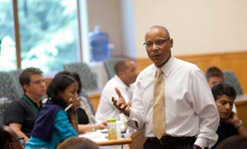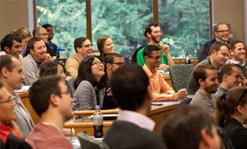Tech Bytes to Know this Week: 7.14.2016
July 14th, 2016Topics: Apps Global Mobile Social

Pokémon Go Brings Augmented Reality to the Masses – In case you missed it, Pokémon Go received a massive response from the general public to the tune of over 20 million daily active users – more than Twitter. Users spend more time in the app each day than in Facebook. In just a short period of time, Pokémon Go has already become the most successful mobile game of all time, besting previous leader Candy Crush. The success is impressive, to be sure, but what does it tell us about augmented reality? Perhaps the most important aspect of the game’s success is that it’s putting a face of augmented reality and making it more “Real” for users and future developers.
Read More: Pokémon Go Tops Twitter’s Daily Users, Sees More Engagement than Facebook
Read More: Pokémon Go Will Make You Crave Augmented Reality
Read More: What are the Differences Among Virtual, Augmented and Mixed Reality?
Read More: Is Pokémon GO Really Augmented Reality?
Read More: How Pokémon Go Took Over the World in a Weekend
Live Video is Changing Society Before Our Eyes – The introduction of live video broadcasting from Facebook and others has been a transformative digital technology. Media companies have long feared that Facebook was disrupting their business and played an out-sized role in determining what news people see on the platform (see the recent controversy over conservative views allegedly suppressed in their Trending section). But the unexpectedly significant impact of Facebook Live combined with the viral impact of social media is playing a much more impactful role on cable news networks. Whether CNN, MSNBC and Fox News realize it, they are rapidly watching the digital disruption of their industry in real time.
Read More: Another Night, Another Shooting on Facebook Live
Read More: Is Facebook Ready to Be the World’s Live News Network?
In Europe, the Innovation Divide Continues – The EU released its annual Innovation Scoreboard this week and the data show that Northern and Western Europe continue to outpace their neighbors to the South and East. That divide is growing, in many ways and likely helps to fuel not only the economic divide between member states, but also the resulting political turmoil as Mediterranean and Eastern Bloc countries struggle to catch up to German and Scandinavian leaders.
Read More: European Innovation Scoreboard Shows Established Inequalities Persisting
Read More: European Innovation Scoreboard
The Politics of Immigration’s Impact on Tech Talent – We often talk about H-1B visas as an important strategy for companies seeking out trained talent in short supply. The H-1B visa has been a bit of a lightning rod for opponents of immigration who claim recipients take good-paying jobs from Americans. Whether you agree or not, it brings a significant pool of highly-skilled workers to the United States for six-year terms. Less discussed is the EB-1 visa that allows foreign nationals of “exceptional” ability (often executives) to apply to become permanent residents in the United States with a path to becoming US citizens. This week the State Department announced it would stop accepting applications for EB-1 visas from Indian and Chinese nationals. The result is at least some of these exceptionally talented workers will need to leave the country.
Read More: The US has Cut Off the Path to Citizenship for India and China’s Most Exceptionally Talented People
Featured CXOTalk video of the week: Episode 180: Digital Transformation at General Electric with Linda Boff, Chief Marketing Officer
General Electric is 135 years old employs 330,000 employees in 175 countries. GE is undertaking a massive transformation to be a digital industrial company, focusing on the “internet of really big things.” In this episode, CMO Linda Boff shares GE’s story and explains digital transformation at this American corporate icon.











